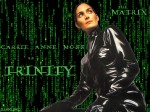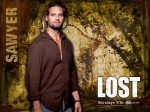I read a lot of books last year. 139 averages out to about 1 book every 2.6 days. My intention was to make comments about my favorite books and where I was when I read certain books, etc. But this has been a draft for a few weeks now – so I’m just going to post it without embellishment. I’m happy to answer any questions you may have (like – how the heck did I read 139 books when I worked 3 jobs last year?).
139 books
RR – re-read 44
NF – Non-fiction 32
MM – Memoir 15
Audio – 12
Emma – Jane Austen RR
Jack of Kinrowan – Charles de Lint RR
Dreams Underfoot – Charles de Lint RR
Debt: the first 5000 years – David Graeber NF
Anil’s Ghost – Michael Ondaatje RR
Speaker for the Dead – Orson Scott Card (audio)
Telegraph Avenue – Michael Chabon
The Last Colony – John Scalzi
Zoe’s Tale – John Scalzi
I Know Why the Caged Bird Sings – Maya Angelou (audio) NF MM
Towers of Midnight – Brandon Sanderson/Robert Jordan RR
Memory of Light – Brandon Sanderson/Robert Jordan
My Life in France – Julia Child RR NF MM
Kicking and Dreaming – Ann & Nancy Wilson NF
Xenocide – Orson Scott Card (audio)
Tapping the Dream Tree – Charles de Lint RR
The Rules of Inheritance – Claire Bidwell Smith NF MM
Flight Behavior – Barbara Kingsolver
The Round House – Louise Erdrich
Fault of our Stars – John Green (audio)
Blue Desert – Charles Bowden RR NF
Z : A Novel of Zelda Fitzgerald – Therese Anne Fowler
Traveling Mercies – Anne Lamott NF MM
Wizard Abroad – Diane Duane RR
So You Want to be a Wizard – Diane Duane RR
Deep Wizardry – Diane Duane RR
High Wizardry – Diane Duane RR
Wizard’s holiday – Diane Duane RR
Eat Pray Love – Elizabeth Gilbert RR NF MM
Children of the Mind – Orson Scott Card (audio)
Reading Lolita in Tehran – Azar Nafisi NF MM
The Power of Habit – Charles Duhigg (audio) NF
Girlchild – Tupelo Hassman
Redshirts – John Scalzi (audio)
Why Be Happy When You Could be Normal? – Jeanette Winterson NF MM
Outliers – Malcolm Gladwell (audio) RR NF
Un Lun Dun – China Miéville RR
The Summer Prince – Alaya Dawn Johnson
Panopticon blog – Franklin Habit NF
Chronology of Water – Lidia Yuknavitch RR NF MM
The Scar – China Miéville RR
The Magician – Lev Grossman (audio) RR
Yes, Chef – Marcus Samuelsson NF MM
Without a Summer – Mary Robinette Kowal
Kraken – China Miéville RR
Finding Your Way in a Wild New World – Martha Beck NF
Zoo City – Lauren Beukes RR
Manhood for Amateur – Michael Chabon (audio) RR NF MM
Shades of Milk & Honey – Mary Robinette Kowal
Glamour in Glass – Mary Robinette Kowal
Sleight – Kristen Kaschock
Wonder Boys – Michael Chabon RR
The Big Meow – Diane Duane
Beatrice & Virgil – Yann Martel
Eliza’s Daughter – Joan Aiken
Broken for You – Stephanie Kallos
The Human Division – John Scalzi
Cooked – Michael Pollan (audio) NF
Sense & Sensibility – Jane Austen RR
Fearless: One Woman One Kayak One Continent – Joe Glickman NF
A Visit to Highbury – Joan Austen – Leigh
Persuasion – Jane Austen RR
Death Comes to Pemberley – PD James RR
Among Others – Jo Walton RR
The God Engines – John Scalzi
Love Medicine – Louse Erdrich RR
Later Days in Highbury – Joan Austen-Leigh
A Wizard Alone – Diane Duane
Beet Queen – Louise Erdrich RR
Pilgrimage – Annie Leibovitz NF
Last Report of Miracles at Little No Horse – Louise Erdrich RR
Supposedly Fun thing I’ll never do again – David Foster Wallace NF
My Foreign Cities – Elizabeth Scarboro NF
Gone Girl – Gilllian Flynn
A Catcher in the Rye – JD Salinger
Idoru – William Gibson RR
All Tomorrows Parties – William Gibson RR
Graphic Canon pt 1 – Russ Kick
Dirt Work – Christine Byl NF
Beautiful Ruins – Jess Walter (audio)
Ocean at the End of the Lane – Neil Gaiman
A Dance of Dragons – George RR Martin RR
Growing up Female in America: Ten Lives – Ed. Eve Merriam NF MM
The Beautiful Struggle – Ta-Nehisi Coates NF
The Dragon Reborn – Robert Jordan
Eye of the World – Robert Jordan
Knife of Dreams – Robert Jordan
Tower of Midnight – Brandon Sanderson/ Robert Jordan
Wolf Hall – Hilary Mantel
The Shining Girls – Lauren Beukes
King Rat – China Miéville
Bringing Up the Bodies – Hilary Mantel
The Shelter Cycle – Peter Rich
Memory of Light – Brandon Sanderson/ Robert Jordan
Gathering Storm – Brandon Sanderson/ Robert Jordan
Population 485 – Michael Perry NF MM
Truck: A Love Story – Michael Perry NF MM
Warbreaker – Brandon Sanderson
Coop: A Family, a Farm, and the Pursuit of One Good Egg – Michael Perry NF MM
Tracks – Louise Erdrich RR
Bingo Palace – Louise Erdrich RR
Dial H for Hero – China Miéville
Pattern Recognition – William Gibson RR
Spook County – William Gibson RR
Drowned Cities – Paolo Bacigalupi
A Year in the World – Frances Mayes NF MM
The Rice Room – Ben Fong Torres NF
Omnivore’s Dilemma – Michael Pollan RR NF
Thud – Terry Pratchett RR
Yiddish Policeman’s Union – Michael Chabon RR
Benediction – Kent Haruf
Persuasion – Jane Austen RR
Sandition & other stories – Jane Austen
Possessing the Secret of Joy – Alice Walker RR
Grass – Sheri S. Tepper
Vicious – Victoria Schwab
Singer From the Sea – Sheri S. Tepper
Tales of the City – Armistead Maupin
The Water Rising – Sheri S. Tepper
David & Goliath – Malcolm Gladwell NF
Gate to Women’s Country – Sheri S. Tepper
The Companions – Sheri S. Tepper
The Handmaid’s Tale – Margaret Atwood RR
Serenity comic series – Joss Whedon
Little County – Charles de Lint RR
Beauty – Sheri S. Tepper
The Memory Palace – Mira Bartok NF
Up Against It – MJ Locke
The Sun Also Rises – Ernest Hemingway
Mythago Wood – Robert Holdstock
Diving into the Wreck – Kristine Kathryn Rusch
Paint it Black – Janet Fitch
The Amazing Adventures of Kavalier & Clay – Michael Chabon RR
Fuzzy Nation – John Scalzi
Jane Eyre – Charlotte Bronté RR
Uglies – Scott Westerfeld
Tough Customer – Sandra Brown
Rise & Shine – Anne Quindlen
Moxyland – Lauren Beukes




